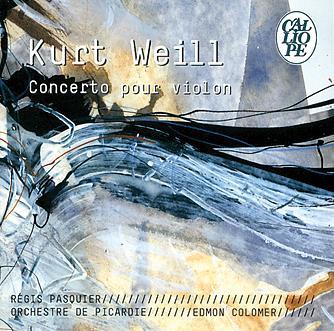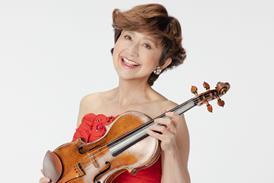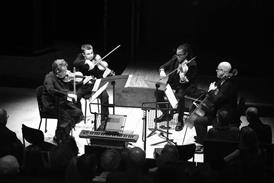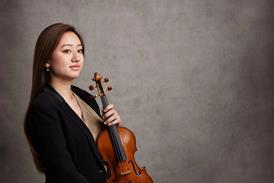
THE STRAD RECOMMENDS
The Strad Issue: January 2007
Musicians: Régis Pasquier (violin) Picardy Orchestra, Edmon Colomer (conductor)
Composer: Bernstein, Weill
Scored for solo violin, string orchestra, harp and percussion, Bernstein’s five-movement Serenade is typically loaded with extra-musical meaning – in this case five Greek philosopher–poets as featured in Plato’s Symposium, who are involved in a deeply meaningful discussion on the subject of love at the home of the poet Agathon. The work is brilliantly structured so that each movement grows naturally out of the material of its predecessor, with the result that it is arguably Bernstein’s most satisfying concert-hall work. Perlman (EMI), Mutter (DG), Kremer (DG) and Bell (Sony), have all recorded the piece with distinction, and although Régis Pasquier is closest to Kremer in terms of his introspective musing and emotional flexibility, he evinces a lone-voiced, sweet-toned vulnerability that is also highly persuasive.
Weill began his career with a series of works that drew ostensibly on the Romantic tradition. Typical of this early period is the concerto for violin, wind instruments, timpani, percussion and double bass of 1925, which combines Stravinskian instrumental flavours with a polyphonic and structural clarity reminiscent of Weill’s erstwhile teacher, Busoni. Cast in three movements, the work has as its central nexus point a tripartite Notturno, Cadenza and Serenata through which the angularity of the opening Andante con moto is transformed via an arresting solo cadenza into the violin’s soaring cantabile during the Allegro finale. Here Pasquier is up against the likes of Hope (a stunning early recorded outing for Nimbus) and Tetzlaff (EMI), yet there is a plaintive, yearning quality about Pasquier’s playing that effortlessly draws the listener in. Sympathetic accompaniments under Edmon Colomer are captured in tangible if slightly under-resonant sound.
JULIAN HAYLOCK
































No comments yet